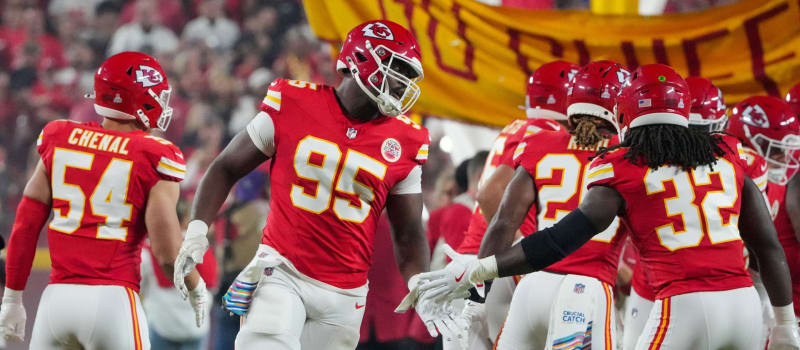The biggest hypocrites of the Riyadh Comedy Festival controversy are Bill Burr and Dave Chappelle, two comedians who have strongly criticized “cancel culture.”
Chappelle has often adopted the stance of the persecuted. After the release of a Netflix special, which stoked backlash from jokes that denied transgender identity, including from people who worked at Netflix, Chappelle responded on stage, “You said you want a safe working environment at Netflix. Well, it seems like I’m the only one who can’t go to the office anymore.”
Once, Burr, in mocking people who claimed “nobody got cancelled” after “they f*****g took out so many innocent people,” retorted, “You did do that, you f*****g *c**ts … Liberal left people flipped out if you didn’t say ‘they’ and they tried to f*****g end you.”
Burr and Chappelle last month took a paycheck from the Saudi government, which made sure that Jamal Khashoggi couldn’t go to his Washington Post office anymore because they ended him.
Or as comedian Marc Maron put it, “The same guy that’s going to pay them is the same guy that paid that guy to bonesaw Jamal Khashoggi and put him in a f*****g suitcase. But don’t let that stop the yuks, it’s going to be a good time.”
Louis C.K. has been a flashpoint in the cancel culture debate, as his career was temporarily sidelined following his admission of routinely masturbating in front of female comics. Still, he re-emerged and has resumed a highly successful stand-up career. I wouldn’t put C.K. in the same “hypocrite” category as Burr and Chappelle, since, to my knowledge, he hasn’t made similar comments railing against cancel culture. But on HBO’s Real Time with Bill Maher, C.K. elaborated on his reasoning for participating.
And his reasoning is terrible:
I’ve always said no to Arab countries.
I do shows everywhere. Like this show I’m playing in India. I’m playing in Turkey. I’m playing in Bangkok, Hong Kong, all over the world this year.
And when this came up, they said, “There’s only two restrictions.” It’s their religion and their government. I don’t have jokes about those two things.
It used to be when you got when I got offers from places like that, there’d be a long list. And I’d just say, “No, I don’t need that.”
But when I heard its opening, I thought, “That’s awfully interesting. That just feels like a good opportunity.”
First off, Louis C.K. has joked about Islam. He has a bit about what happens after a jihadist dies in a terrorist attack and is granted 72 virgins, and where those women come from.
But I understand the deep sensitivities some in Saudi Arabia have regarding Islam, so I do think it’s reasonable for the Riyadh festival organizers to conclude that jokes about Islam would, to say the least, not go over well and ruin the whole event.
More importantly, is C.K.’s conclusion that since he doesn’t have jokes about the Saudi government, it doesn’t matter that he wouldn’t be allowed to make jokes about the Saudi government, especially since it’s “interesting” that the Saudi government is becoming more open about other once-taboo topics?
This is willful blindness about Saudi Arabia’s long-standing charm offensive design to soothe socially liberal American and European audiences and cloak the continuing brutality of its regime.
The New York Times summed up the public relations strategy almost exactly seven years ago in the wake of Khashoggi’s murder:
Just six months ago, American media outlets presented a sunny-side-up portrait of Crown Prince Mohammed bin Salman of Saudi Arabia as he made a good-will tour of New York, Hollywood and Silicon Valley.
Eager journalists captured him at Starbucks with Michael R. Bloomberg, strolling the Google grounds with Sergey Brin and dining with Rupert Murdoch. Built into the narrative was a mostly cheerful acceptance of the story Crown Prince Mohammed was selling about himself—that here, at last, was the modern Middle Eastern leader the West had been waiting for.
That story started to crack apart on Oct. 2, when the Saudi journalist Jamal Khashoggi, a sharp critic of the Saudi government, walked into the country’s consulate in Istanbul and didn’t walk out …
… The apparent hit was part of a progression that was underway long before Crown Prince Mohammed’s charm campaign, which made him out to be not some ruthless royal, but a youthful reformer who had granted Saudi women the right to drive and lifted the country’s 35-year ban on movie theaters (a potential jackpot for Hollywood).
The rebranding effort also made it easier for United States businesses to tap into the billions the crown prince controlled in the Saudi Public Investment Fund. As it happened, the fund was seeking stakes in the American entertainment and media companies that mint mythologies and own the news.
Undeterred by the bad publicity around the Khashoggi murder, the Saudi’s have expanded their propaganda campaign in recent years with extensive investments in sports and gaming—often called “sportswashing”—including the LIV Golf league, which Donald Trump is hosting at his private golf courses.
So, for Saudi Arabia to host a comedy festival that includes, as C.K. approvingly noted, “a woman who’s lesbian and Jewish who did a show there and … got a standing ovation,” might sound like progress—and would be progress if not for the fact she was being used to sanitize a horrific dictatorship that brooks no dissent.
The broader context for the comedy-washing play goes beyond the borders of Saudi Arabia. Trump is rolling back democratic freedoms at home: using his bully pulpit to threaten individuals and institutions as well as question the validity of elections, gradually ramping up domestic use of the military to quash protests under the guise of stopping crime, asserting unitary executive powers, and daring Congress and the judiciary to do anything about it. Moreover, he and his allies downplay or even praise authoritarian tactics used in other countries by those in power and by far-right populist parties seeking power. Often, these unconstitutional and un-American tactics are dressed up with winking humor. Comedy can be an effective tool, but comedians are fooling themselves if they think every joke is a blow for freedom.
What’s particularly frustrating is that Burr, Chappelle, and C.K. are some of our sharpest comedians, all making serious yet shoddy defenses of their actions. Their words merit scrutiny. Chappelle said in Riyadh, “It’s easier to talk here than it is in America,” which is ludicrous (and on Real Time, Maher and C.K. noted it’s ludicrous).
Burr, on his podcast, echoed C.K. in downplaying the restrictions. He said the festival organizers were told that “if you want some good comedians,” heavy restrictions wouldn’t work, so “to their credit, they said, ‘All right, what do we got to do?’ And they just negotiated it all the way down to just a couple things, which were, basically: Don’t make fun of royals [and] religion.” With uncharacteristic naivete, he marveled that, in part, because “the royals loved the show… I think it’s going to lead to a lot of positive things.” And he was weirdly bowled over by the familiar chain restaurants: “I thought this place was going to be really tense. And I’m thinking like: ‘Is that a Starbucks next to a Pizza Hut next to a Burger King next to McDonald’s … ? They got a f*****g Chili’s over here!”
Yes, you can eat Chili’s baby back ribs and tell jokes where the government murders and incarcerates people for their political views. That is not progress.
Related
Source link



